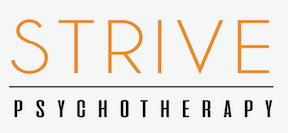ADHD in College Students

ADHD can pose significant challenges for college students and young adults living on their own for the first time. In fact, 78% percent of clients at Collegiate Coaching Services (CCS) have ADHD. Recognizing the signs and getting a formal diagnosis are the first steps to getting help. Once a diagnosis is made, students can get treatment and accommodations that improve their chances of academic and professional success. Read on to learn more.
Table of Contents
The Difference between ADHD and ADD
ADD, which stands for attention deficit disorder, is an outdated term for what doctors now call ADHD or attention deficit/hyperactivity disorder. Previously, when a patient had trouble paying attention or being on time, they were diagnosed with ADD. When symptoms of hyperactivity and impulsivity were observed, they were diagnosed with ADHD. Today, patients are diagnosed with ADHD whether or not they exhibit hyperactivity. Attention deficit hyperactivity disorder (ADHD) is the preferred medical term and there are three subtypes:
- Primarily inattentive
- Primarily hyperactive
- Combined
Researchers now know that all ADHD patients exhibit both types of symptoms and that the severity of symptoms can vary throughout the lifespan and from individual to individual.
ADHD in College Students – 10 Signs and Symptoms

*It’s important to note that the presence of one or more of these doesn’t equal a diagnosis of ADHD. A screening by a licensed professional is required to rule out other possibilities.
ADHD looks different from one individual to the next and throughout the lifespan. These are some signs and symptoms that could point to ADHD in a college student, teen, or young adult.*
- Poor academic performance despite academic capability.
- Difficulty controlling emotions.
- Can’t get themselves to study despite knowing the really need to.
- Overwhelmed by organizational tasks.
- Seeking avoidance through video game use or internet activity.
- Difficulty managing their time.
- Difficulty planning for the future.
- Impulsive behaviors.
- Low self-esteem due to these challenges.
- Depression and anxiety stemming from these challenges.
10 Benefits of Having ADHD
People with ADHD also enjoy many benefits. The following are some common traits that can contribute to an individual’s success.
- Able to think outside the box and find creative solutions to problems.
- Big picture thinker.
- Displaying incredible tenacity and focus when a subject has their attention.
- Noticing details others overlook.
- Adventurous and open to new experiences.
- High energy.
- Endless curiosity.
- Able to see connections and patterns.
- Funny. Making connections between seemingly unassociated things to the amusement of others.
- Honest. Impulsivity can mean people with ADHD say what they think.

What Causes ADHD?
- Studies show a large genetic component – If a child has ADHD, there’s a higher than 50% chance one of their parents has it and a greater than 30% chance a sibling will have it, too.
- It’s “hardwired” to the brain — Research shows that the brains of people with ADHD have structural, chemical, and functional differences from neurotypical brains. Scientists don’t yet understand how these differences work to cause ADHD, but they are well documented.
- It’s chronic — Signs and symptoms appear before the age of twelve. And for 90%, the condition is present across the lifespan. Which means chances are high you won’t outgrow it.
Why is Identification of ADHD Important for College Students?
It’s crucial for college students and college-bound individuals to identify and accept when ADHD is a factor in their lives. This is because it negatively affects a person’s ability to perform academically even when they are academically capable. Once an official diagnosis is in place, students can begin to receive regular treatment and apply for accommodations from their university. Which can greatly improve their chances of success.
Evaluating a College Student for ADHD
 Even if a student received an ADHD diagnosis before they finished high school, they may need an updated evaluation to receive accommodations at their university. Collegiate Coaching Services offers psychoeducational assessments and we have extensive experience assessing college and high school students.
Even if a student received an ADHD diagnosis before they finished high school, they may need an updated evaluation to receive accommodations at their university. Collegiate Coaching Services offers psychoeducational assessments and we have extensive experience assessing college and high school students.
Some of the mental processes we evaluate include attention, concentration, processing speed, working memory, reasoning, novel problem-solving, language abilities, spatial abilities, memory, and executive functions like planning and organizing.
It’s important to be evaluated by a licensed medical provider and begin treatment if appropriate. That starts with a visit to a primary care physician or school counselor. Ask them to refer you to a licensed ADHD specialist who is trained in ADHD evaluation. For college student evaluation, be sure to look for someone who has experience working with adults with ADHD.
Treatment for Young Adults
Coaching

- Executive Functioning Coaching – Executive functioning skills are brain-based functions that allow us to access information, think about solutions, and implement ideas. People with ADHD face executive functioning challenges and can benefit from executive functioning coaching to learn strategies and skills to compensate. At CCS our executive functioning coaches work collaboratively with clients to develop and implement strategies and tools to get students back on track academically.
- Therapeutic Coaching – Therapeutic coaching helps clients take the skills they learned in therapy and apply them in everyday life. CCS provides therapeutic coaching services for clients in Boulder, Colorado.
- Executive Functioning College Prep Summer Program – Our executive functioning summer program is a college preparatory course for young adults with executive functioning issues. Students participate in a college-level course while working with coaches behind the scenes to develop the skills and confidence they need to succeed at college.
- Supervised Independent Living Skills – Our Supervised Independent Living Skills (SILS) program is ideal for young adults seeking to better prepare for independent life at college. The SILS program is for participants of the CCS summer college prep course who live in Boulder or are willing to relocate for the summer.
- Accommodations – Colleges aren’t required to provide the same level of accommodations for students with ADHD that they get during K-12. But there are a number of learning supports and interventions available to help students with ADHD succeed in college.
Summer Programs
- Executive Functioning College Prep Summer Program – Our executive functioning summer program is a college preparatory course for young adults with executive functioning issues. Students participate in a college-level course while working with coaches behind the scenes to develop the skills and confidence they need to succeed at college.
- Supervised Independent Living Skills – Our Supervised Independent Living Skills (SILS) program is ideal for young adults seeking to better prepare for independent life at college. The SILS program is for participants of the CCS summer college prep course who live in Boulder or are willing to relocate for the summer.
Accommodations
- Accommodations – Colleges aren’t required to provide the same level of accommodations for students with ADHD that they get during K-12. But there are a number of learning supports and interventions available to help students with ADHD succeed in college. CCS coaches can help clients navigate through college bureaucracy by guiding and accompanying them to important departments on campus, such as disability services, academic services, counseling services and more.
Getting ADHD Accommodations in College
The following are some recommendations for creating an accommodation plan that works for you or your student at college.
Identify and Accept Your ADHD
Studies show that only a small percentage of students with learning disabilities request accommodations in college. This is because many students carry denial or shame about their diagnosis. Which is why we say ADHD must not only be identified, but accepted by the student so that they can advocate for themselves throughout the college accommodation process which can be long and complicated.
Research the university’s office of disability resources
Find out what kind of accommodations your university or college provides and what the eligibility requirements are. The earlier you do this the better, as some schools require new proof of eligibility. That means, even if a student was evaluated during K-12, a university could require you to get a new screening to receive accommodations at their institution.

Re-register for accommodations every semester
Once initial eligibility is established with the university, students must re-register for accommodations every semester. Re-registration entails filling out a formal request form saying you still want and need accommodations. This can often be done through the university’s website but check with your institution for specific instructions.
Coordinate with instructors every semester
Students must coordinate with each of their instructors at the beginning of the semester to receive accommodations in a way that works for the class. Federal law states that universities and colleges are not required to make accommodations and modifications of policies and practices if it would fundamentally alter the nature of the service, program, or activity or give rise to an undue financial or administrative burden for the institution. Which is where college accommodations differ from K-12. In college, even when a student qualifies for accommodations, they don’t always get the ones they request.
Read More About This Topic
Help Your Teen Transition from High School to College [ADDitude Magazine]
College Students: Enroll Now
- In-person Executive Function and Therapeutic Coaching Services for college-bound students in Boulder, Colorado
- In-person Executive Function Coaching Services for college-bound students in Boston, Massachusetts
- Virtual Coaching Services for students around the globe






